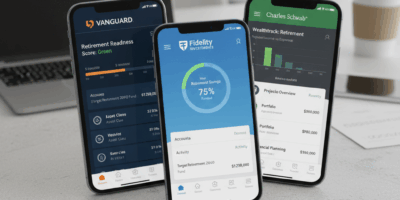New Retirement
New Retirement
Retirement has always been a significant life event. Recently, shifts in economics, technology, and lifestyles have transformed how we approach it. The traditional model, where people retire at 65 and live on pensions, is evolving.

The Financial Landscape
Pensions, once the bedrock of retirement planning, are becoming less common. Many employers have shifted from defined-benefit plans to defined-contribution plans like 401(k)s. This change places more responsibility on individuals to plan and save for their retirements.
Social Security faces challenges of its own. While not in immediate danger, its long-term viability is a concern. People are increasingly advised to not rely solely on Social Security for retirement income.
Accounts like Roth IRAs and traditional IRAs offer tax-advantaged ways to save. Understanding the differences between them is crucial. Contributions to traditional IRAs often provide immediate tax benefits, whereas Roth IRAs offer tax-free withdrawals in retirement.
Investment Strategies
Investment strategies have also seen a shift. Passive investing, through index funds and ETFs, has gained popularity due to lower fees and better average returns. This approach reduces the need for constant market monitoring.
Diversification remains key. Allocating funds across different asset classes can mitigate risks. Including stocks, bonds, and real estate in a portfolio can provide balanced growth and stability.
The role of financial advisors is evolving. Digital platforms and robo-advisors offer accessible, low-cost options for planning and managing investments. These tools can simplify decision-making and provide personalized advice.
Healthcare Considerations
Healthcare costs are a significant concern for retirees. Medicare provides a foundation, but it doesn’t cover everything. Supplementary plans and long-term care insurance can bridge gaps.
Preventive care and healthy living are increasingly emphasized. Staying active, eating well, and regular check-ups can reduce healthcare costs over time.
Retirees should explore options like Health Savings Accounts (HSAs). These accounts offer tax advantages and can help cover medical expenses, providing another layer of financial security.
Housing and Lifestyle
Housing decisions impact retirement finances and quality of life. Downsizing can free up equity and reduce expenses. However, emotional attachment and costs associated with moving must be considered.
Some retirees opt for age-restricted communities or co-housing arrangements. These environments offer social opportunities and a sense of community, addressing potential isolation.
Technology enables more flexibility in living arrangements. Remote work and digital nomadism allow for unconventional retirement lifestyles. Some choose to travel extensively or live in lower-cost countries, taking advantage of exchange rates and reduced expenses.
Work and Purpose
Many people now view retirement as a transition rather than an end. Continuing to work part-time or starting new ventures can provide additional income and a sense of purpose. The gig economy offers various flexible opportunities.
Volunteering and mentorship provide fulfilling ways to stay engaged. These activities can offer structure, social interaction, and personal satisfaction.
Family and Legacy
Planning for family and legacy is another aspect of modern retirement. Estate planning ensures that assets are distributed according to one’s wishes. Wills, trusts, and powers of attorney are essential components.
Gifting strategies can provide financial support to family members while managing tax implications. Education funds for grandchildren, gifting appreciated stocks, or using annual gift exclusions are options to consider.
Passing down values and skills is also meaningful. Sharing knowledge about financial literacy or imparting family traditions can create lasting legacies beyond material wealth.
The Role of Technology
Technology plays a significant role in modern retirement. Financial tools and apps help manage budgets, track investments, and plan for the future. These resources provide access to information and simplify complex tasks.
Healthcare tech, such as telemedicine and wearable devices, enhances wellness and convenience. These tools allow for remote consultations, continuous health monitoring, and early detection of potential issues.
Communication tech keeps retirees connected with family and friends. Video calls, social media, and online communities reduce feelings of isolation and promote social interactions.
Education and Continual Learning
Continual learning is essential for adapting to new retirement realities. Online courses, workshops, and educational programs keep retirees informed and engaged.
Lifelong learning can also be intellectually stimulating and provide a sense of accomplishment. Pursuing hobbies, exploring new subjects, or attending local classes fosters personal growth.
Environmental and Social Considerations
Many retirees are becoming more environmentally conscious. Sustainable investing aligns portfolios with personal values, supporting companies with positive environmental practices.
Social considerations, such as community involvement and philanthropy, play a role. Retirees may focus on giving back and making a social impact, enhancing their sense of purpose.
Challenges and Adaptation
Adapting to retirement can present challenges. Loss of routine and identity shifts require proactive management. Setting new goals and maintaining social connections help ease the transition.
Financial uncertainties, such as market fluctuations and longevity risk, necessitate flexible planning. Regularly reviewing and adjusting plans ensures continued alignment with changing circumstances.
Health changes may also arise. Staying informed, seeking support, and maintaining a positive outlook contribute to overall well-being.



